10 Open source Self-hosted ERP Systems for 2024 (Updated)
Streamlining Business Operations with Open Source Solutions
Are You Truly Ready to Put Your Mobile or Web App to the Test?
Don`t just assume your app works—ensure it`s flawless, secure, and user-friendly with expert testing. 🚀
Why Third-Party Testing is Essential for Your Application and Website?We are ready to test, evaluate and report your app, ERP system, or customer/ patients workflow
With a detailed report about all findings
Contact us nowTable of Content
Managing day-to-day operations with an ERP system has become critical for businesses of all sizes. From finance and accounting to inventory and human resources, ERP systems provide a comprehensive application suite that integrates all aspects of a company's operations into a single system.
Benefits of using Open Source ERP systems
Open source ERP systems, such as Odoo and ERPNext, offer several benefits for businesses. These systems provide businesses with a customizable and flexible solution that can be tailored to their specific needs. They also offer a lower cost alternative to proprietary ERP systems.
Open source ERP systems are often more secure than proprietary systems as they are constantly being reviewed and updated by a community of developers. This can provide businesses with peace of mind knowing that their data is secure.
In addition, open source ERP systems offer a wide range of features, including accounting, inventory management, and human resources management. These features can help businesses to streamline their operations and improve their efficiency.
Open source ERP systems also provide businesses with the ability to integrate with other systems, such as CRM and e-commerce platforms. This can provide businesses with a comprehensive solution that meets all of their business needs.
Overall, open source ERP systems can provide businesses with a cost-effective, secure, and customizable solution for managing their operations. By using an open source ERP system, businesses can improve their efficiency, streamline their operations, and reduce their costs.
With the growing popularity of open-source software, many free and open-source ERP solutions are available, making it easier than ever for businesses to implement an ERP system without breaking the bank.
In this article, we'll take a look at some top open-source ERP systems to watch out for in 2023.
1- YetiForceCRM
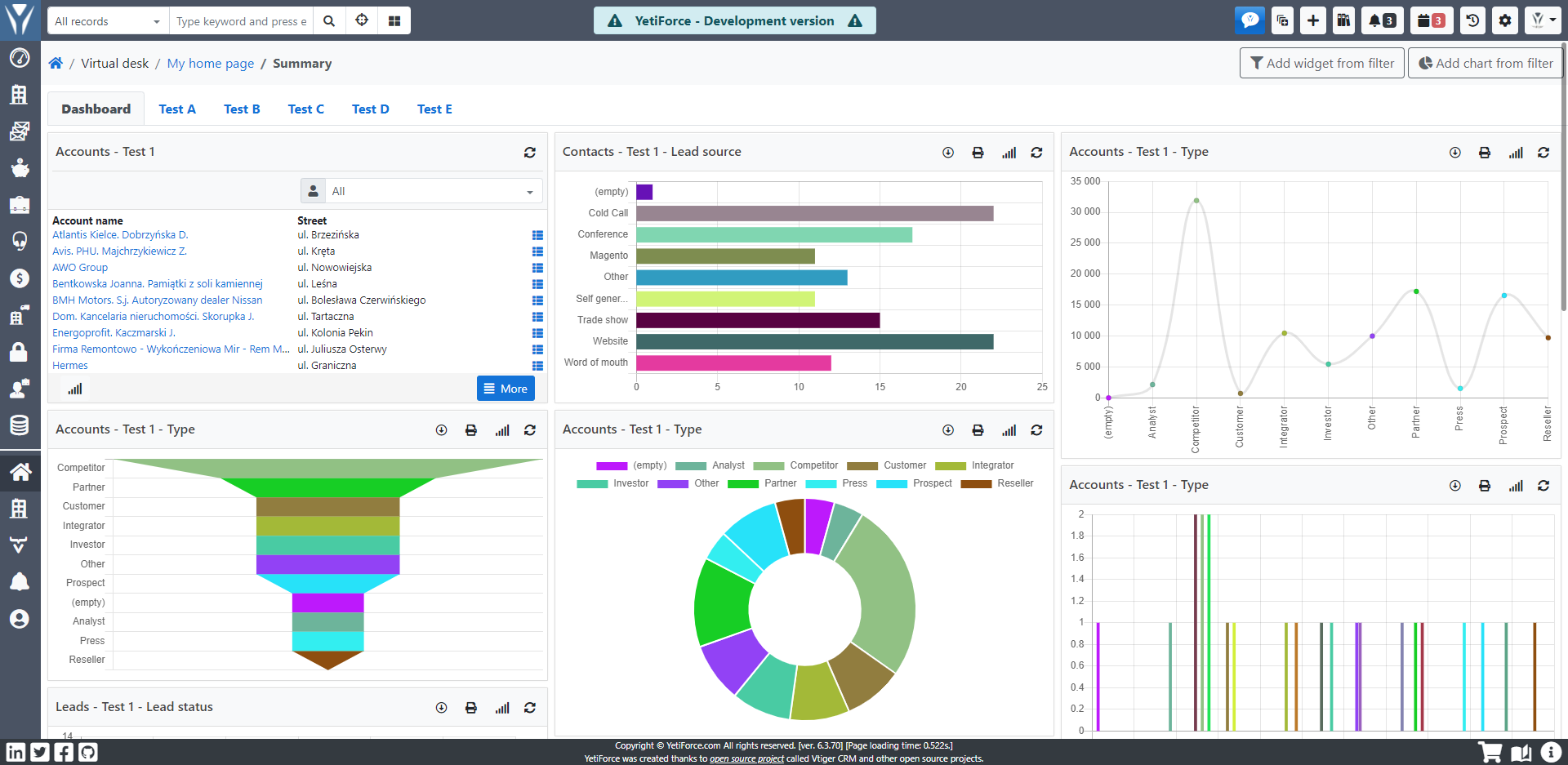
YetiForceCRM is an open-source, web-based CRM and ERP system that offers a range of modules for managing various aspects of a business. Modules include sales, marketing, project management, inventory, finance, and more. Any organization can customize the system to meet its specific needs.
Key Features
- Advanced reporting and analytics capabilities to help businesses make data-driven decisions
- A customizable user interface to suit individual business needs and preferences
2- Metasfresh
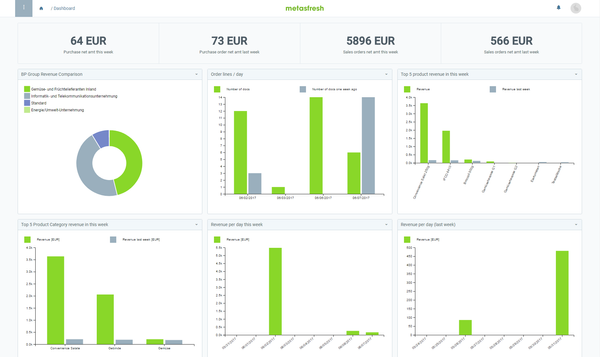
Metasfresh is a cloud-based ERP system that manages sales, inventory, procurement, production, and accounting. Adaptable to any business, the system is highly configurable. Employees can also easily use it thanks to its user-friendly interface.
Key Features
- Built-in support for multi-currency and multi-language environments, making it ideal for international businesses
- Extensive inventory management capabilities, including real-time tracking and control of stock levels
3- Ever Gauzy
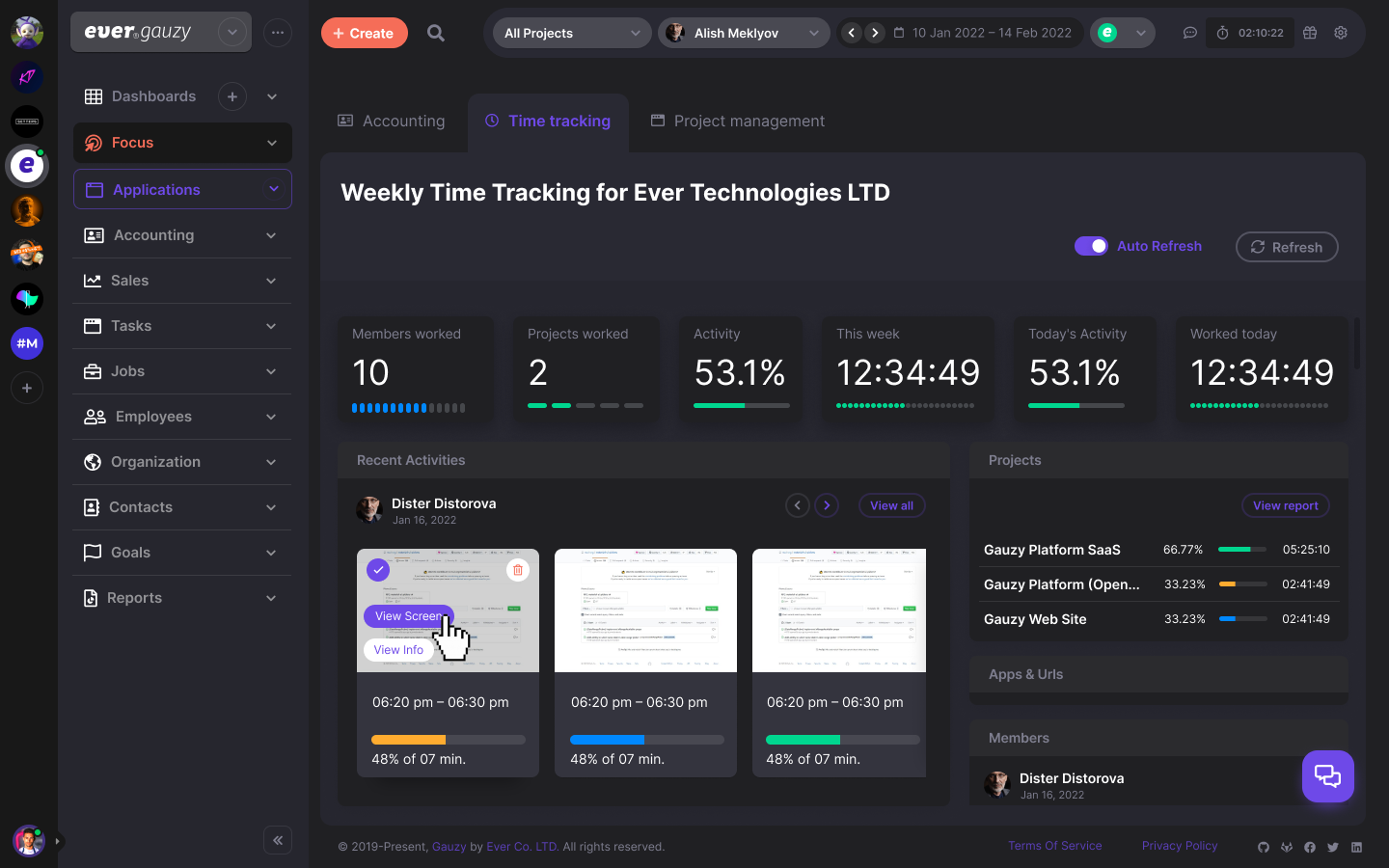
Several modules are available in Ever-Gauzy to manage various aspects of a business, including accounting, inventory, production, and human resources. Any organization can customize the system to meet its specific needs. It also offers a mobile app for on-the-go access.
Features
- Includes a comprehensive HR management module with employee onboarding, payroll management, and performance tracking features.
- A built-in project management tool enables businesses to manage and track their projects efficiently.
4- WP ERP
WP ERP is a free and open-source ERP plugin for WordPress that provides a suite of applications for managing various aspects of a business, including HR, CRM, accounting, and project management. It's designed to work seamlessly with WordPress, making it easy to integrate with existing websites.
Features
- Provides a user-friendly interface that integrates seamlessly with WordPress websites.
- Offers a range of add-ons and extensions, including HR, CRM, and project management modules, to customize the system to meet specific business needs.
5- Totum
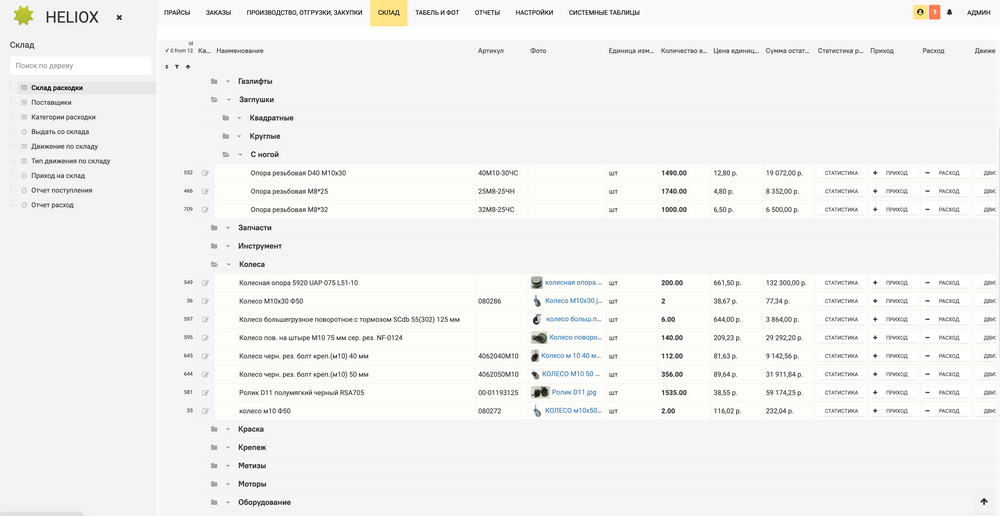
Totum includes modules to manage finance, inventory, production, human resources, and other aspects of a business. Totum is a free and open-source ERP system. Adaptable to any organization's needs, the system is highly customizable.
Features
- Offers a highly customizable interface that can be tailored to meet the needs of individual businesses.
- Provides a range of modules covering various business areas, including sales, marketing, customer service, and accounting.
6- Hexya
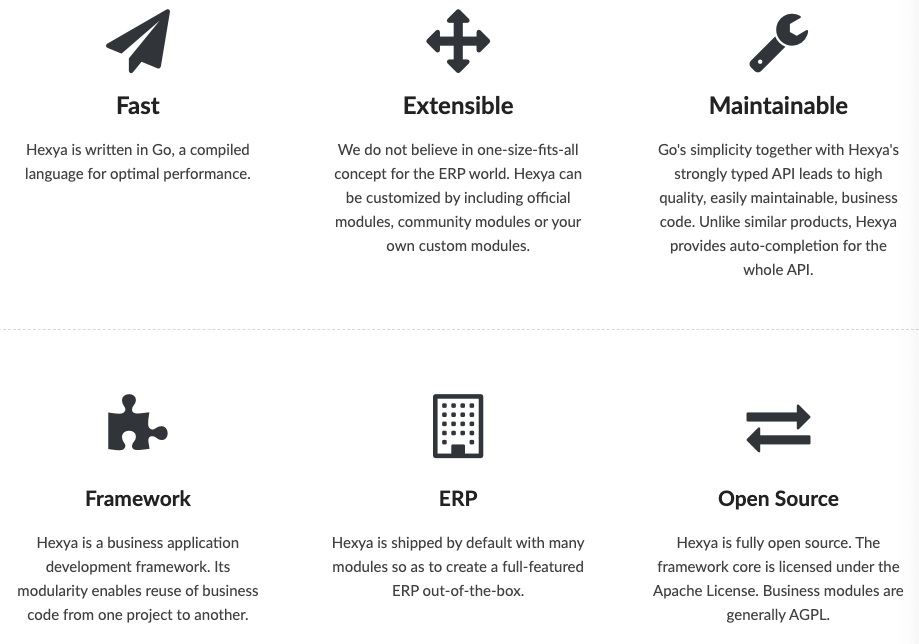
Hexya is a free and open-source ERP system that provides a range of modules for managing various aspects of a business, including sales, inventory, procurement, and accounting. It's designed to be highly scalable and easily adapted to meet the needs of any business.
Features
- Open-source, meaning it can be easily customized and extended to suit specific business requirements.
- Offers an integrated solution that includes modules for sales, marketing, accounting, and project management, among others.
7- EasRP
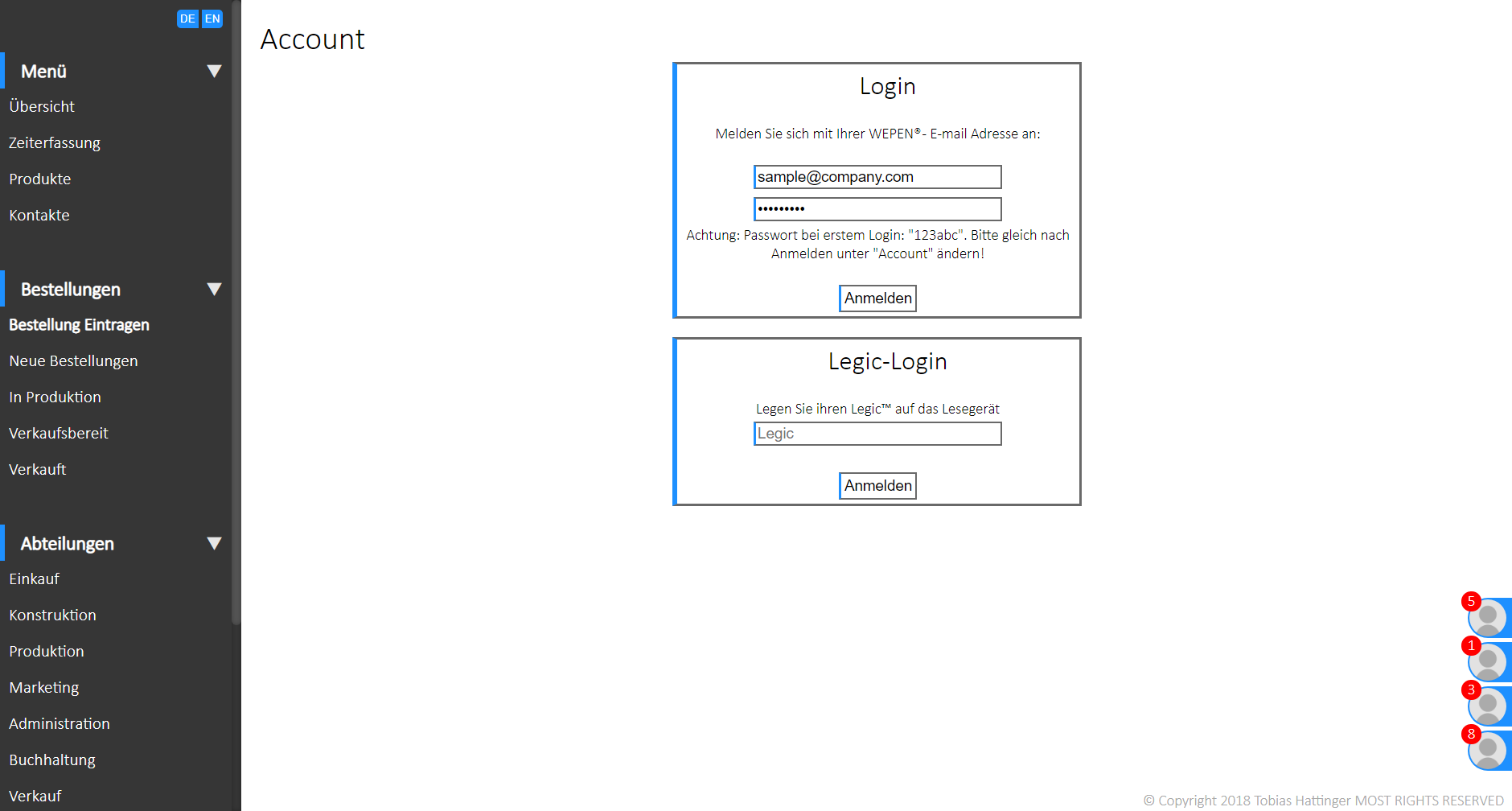
EasRP is an open-source, web-based ERP system that provides a range of modules for managing various aspects of a business, including sales, inventory, procurement, and accounting. It can be easily customized to meet the needs of any business.
Features
- Offers a flexible and scalable platform that can be customized to meet the needs of businesses of any size.
- Provides a range of features, including inventory management, sales, purchasing, and financial reporting.
8- FacturaScripts
Scripts for FacturaScripts provide a range of modules for managing the business's accounting, inventory, procurement, and production aspects. Every business can use it and customize it to fit their needs.
Features
- Offers a range of accounting features, including invoicing, expense tracking, and financial reporting.
- Provides a customizable user interface that can be tailored to meet individual business needs.
9- CoreBOS
CoreBOS is a free and open-source CRM and ERP system that provides a range of modules for managing various aspects of a business, including sales, marketing, inventory, and accounting. It's designed to be highly flexible and easily customized to meet the needs of any business.
coreBOS and most of its modules and extensions are distributed under a slightly modified MPL or Vizsage license but some GPL projects do exist.
Features
- Offers a range of CRM and sales features, including lead management, opportunity tracking, and customer service.
- Provides a flexible and scalable platform that can be extended through custom modules and add-ons.
10- NotrinosERP
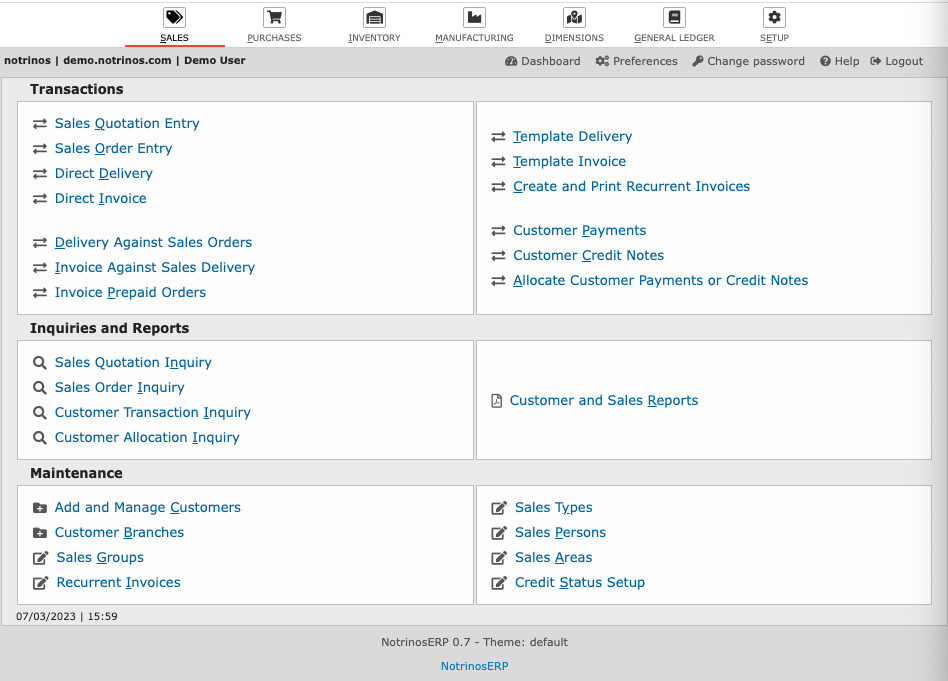
With NotrinosERP, businesses can manage various aspects of their enterprises using an open-source, web-based system, including finance, inventory, procurement, and production.
Features
- Offers a range of features, including inventory management, purchasing, and financial reporting.
- Provides a customizable user interface that can be tailored to meet individual business needs.
Common FAQs of OS ERP Systems
1. What is an OS ERP system, and how can it benefit my business?
By providing a unified platform for managing key business functions, OS ERP systems can help businesses streamline their operations.
Benefits can include improved efficiency, cost savings, and enhanced data visibility.
2. What are some critical features of an OS ERP system?
An OS ERP system typically includes various features, such as inventory management, sales and purchasing, financial reporting, and customer relationship management.
These features are designed to help businesses automate and streamline their operations, improving efficiency and reducing the risk of errors.
3. How do I choose the right OS ERP system for my business?
Picking the right OS ERP system depends on various factors, including the size and complexity of your business, your specific industry requirements, and your budget.
Evaluating different options carefully is essential, considering scalability, customization options, and support and training resources.
Conclusion
Open source ERP systems provide businesses with secure, customizable, and cost-effective solutions through constant updates from a community of developers. With features like accounting, inventory management, and human resources management, businesses can improve efficiency.
Open source ERP systems can integrate with other systems (e.g., CRM, e-commerce) to provide a comprehensive solution that improves efficiency, streamlines operations, and reduces costs.










